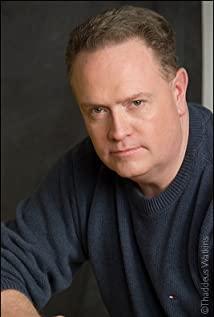I watched two films directed by Kaufman, One is "Disorder," the other is this "New York Synonymy," and I watched "Becoming John Mavorkovich," which he wrote. I have to say Kaufman is a very recognizable screenwriter, just like Richard Curtis (Love Actually, Pirate Radio, BJ's Diary, Notting Hill, Four Weddings and One Funeral), had to It is said that these two screenwriters are like a set of antonyms. The more romantic and fresh Curtis is, the more sad and healthy Kaufman is.
Kaufman's strengths and weaknesses are evident. He is good at creating a self-absorbing male protagonist (after careful consideration, I chose this way of expression instead of writing it directly. Kaufman is a very self-absorbing person, although I do have such prejudices in my heart conjecture), and is also very good at describing the loneliness of people.
In fact, many creators are trying to outline human loneliness, but the containers they choose are different. Some authors are very good at building relationships, such as writing about couples, about families, and about a group. Even though there are protagonists and supporting roles, they can still make you feel that everyone is lonely and misunderstandings are mutual. Try to communicate again and again, Failing again and again, such authors try to tell you that loneliness is a universal state of life.
Kaufman is actually trying to convey the message to his audience that life is like a drama, everyone is living their own lives and talking to themselves, and loneliness is an inevitable destiny. But I don't think he succeeded in presenting his ambitions, he wanted to show loneliness in a grand and broad sense, and all I saw was the male protagonist living in his own world.
Miss Woolf once wrote in her essay collection "The Common Reader" that when we read something like "Pride and Prejudice" or "War and Peace," we get the sense that Miss Austen and Toon have created A whole world, whether we open the page or close it, Mrs. Bennett, Mr. Collins, Natasha, Pierre go about their own lives, day and night. And when we read works like Jane Eyre, we see the world through Jane Eyre's eyes, and when she closes her eyes, the world doesn't exist. In my opinion, Kaufman's works are also like this. He never really creates multiple characters. The only real living person in his works is the male protagonist. The other characters are set boards, used to reflect his situation and reflect his loneliness.
This is even more obvious in "Disorder". From the perspective of the male protagonist, everyone else, male or female, speaks in the same tone. Only one woman who arouses his interest has a color and a unique voice. , but when the character completes her mission, she continues to be a stunner.
And in Synonyms of New York, even though we have so many characters, Caden has passed through so many people in his life, women, children, colleagues, these people are all silhouettes, we only have Caden's point of view, and there are some fragmentary glimpses. Impressions, even if we don't know if they are real, are likely to have been emotionally processed or memory distorted by Caden.
The loneliness of these male protagonists is very real, but also somewhat difficult to sympathize with, because they are really too immersed in their own world, watching their belly buttons, and mourning and crying. , including their own relatives and lovers, lack real interest. In fact, Kaufman also has a very clear understanding of this, whether in "New York Synonyms" or "Disorder", he uses other people's mouth to clearly point out the selfishness and self-pity of the male protagonist, as well as certain Self-inflicted to some extent, and, apparently, Kaufman never intended to make his male protagonists endearing, or to defend him, he brought their over-ego personalities very real.
This is even more depressing. Yes, we are aware of the weakness of our character, but this is also the characteristic of our character, such as blood and flesh, it is part of us, so can we still be happy? Can we still be happy? Can we truly communicate and form intimate connections with others?
The answer may be heartbreaking.
View more about Synecdoche, New York reviews











